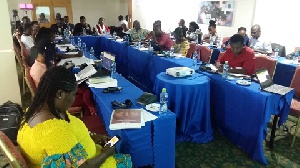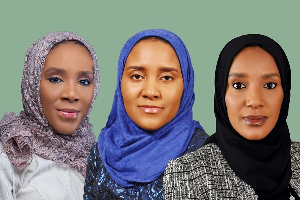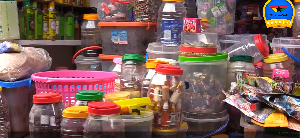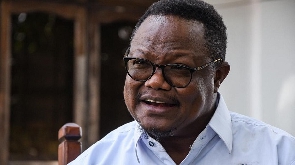The Executive Director of Plan Parenthood Association of Ghana (PPPAG), Mrs Abena Adubea Amoah Acheampong has charged journalists in the country and beyond to endeavor to study hard and engage health experts to gain adequate knowledge and information on sexual and reproductive health issues confronting people to be able to shed more light on them for solution.
According to her, sexual and reproductive health issues including population control and its management are of utmost importance to human development and therefore ought to be given much attention by journalists in their daily reportage.
“These are issues that we need to always talk about so I will urge all of you. if you want to be health reporters and want to report on sexual education, then you must learn as much as you can, engage with the experts as much as possible to bring out the real issues” she stressed.
Mrs Abena Acheampong was addressing a group of journalists at a 1-day training workshop on Sexual Reproductive and Health Rights(SRHR) at the Alisa Hotel in Accra on October 3, 2018.
The workshop dubbed: “#RightByHer Journalists Training Workshop” was initiated by the International Planned Parenthood Federation, Africa Regional Office (IPPF), Plan Parenthood Association of Ghana (PPPAG) and sponsored by the State of the African Women’s (SoAW) Report Project.
It was aimed at equipping journalists with knowledge on the basis of Sexual Reproductive and Health Rights(SRHR) reporting and its terminologies to further improve SRHR stories and articles to increase its sector.
According to Advocacy Officer of the #Right by her campaign, Mark Okundi, the rationale behind the workshop was to train and incorporate journalists into the #rightbyher campaign to serve as agents who can champion women rights issues especially those that are captured under the Maputo Protocol and Maputo plan of action ratified and signed by different African governments.
“So we had training with journalists and we’ve just taken them through the basics and what it takes to report on sexual reproductive health and rights and also committed to be #right by her champions”.
“I believe through the barrel of the pen and what it takes as journalists they’re going to be champions and raise their voices concerning women rights issues based on the commitment documents that cover the entire Africa not only in Ghana”, he underscored in an interview.
In all 25 selected African journalists drawn from Kenya, Togo, Cameroun and Ghana were vigorously trained on various segments on health reporting including sexual and reproductive health issues, reporting on emerging health issues, myths and misconceptions in health reporting and ethics in health reporting among others.
They were also introduced to the implementation progress of AU’s Maputo Protocol on the rights of women in Africa and the Maputo Plan of action(MPoA)-which is the implementation framework for the Continental Policy Framework on SRHR).
The participants were incorporated into the IPPF Africa Journalists Network as new members after the training. They were also charged to be committed and support the #rightbyher campaign to achieve its target as champions.
The Ghanaian counterpart of participants include Zadok Gyasi (Daily Graphic), Mabel Faith Tannor (Daily Graphic), Patience Ampomah (GIJ), Portia Oforiwaa (Daily Graphic), Fafa Agbenorto(ISD), Kwame Buckman (Top Radio), Aliya Bayali(ISD), Joseph Kobla Wemakor (Editor-in-Chief, Ghananewsone.com), Justice Adoboe (Xinhua News Agency), Ellen Agbavor (Ghanaian Observer Newspaper), Anita Frimpong (Pink FM) and Prince Asiedu(GBC).
Addressing participants, Mrs Abena Adubea Amoah Acheampong PPPAG’s Executive Director appealed to the journalists to always strive to engage with experts from her outfit, adding that they are willing and able to volunteer information on issues regarding Comprehensive Abortion Care(CAC), Sexual and Reproductive Health Rights(SRHR) and issues of cervical cancer among other health issues regarding education on sexuality and rights of people.
“We are there for you, so come to us for the information and the explanation that you will need. If you need resource people on your programs, we have experts within PPAG on all these issues”.
“I want you to make use of us and the knowledge that we have to be able to advance the knowledge of this country”, she underscored.
For her part, Dr Leticia Adelaide Appiah, Executive Director of National Population Council of Ghana(NPC), stressed the need for journalists to always give accurate information on sexual and reproductive health rights issues to help people make informed choice on their sexuality.
According to her, sexual health and reproductive information and services are components of human capital development which includes population and economic development, a crucial area of attention but unfortunately surrounded by so much myths which ought to be cleared by journalists.
She therefore appealed to the participants to always equip themselves with the right information and offer accurate reportage to clear people’s minds off the misconceptions and myths surrounding the population control, its management and sexual reproductive health issues.
Health News of Thursday, 4 October 2018
Source: Joseph Kobla Wemakor













